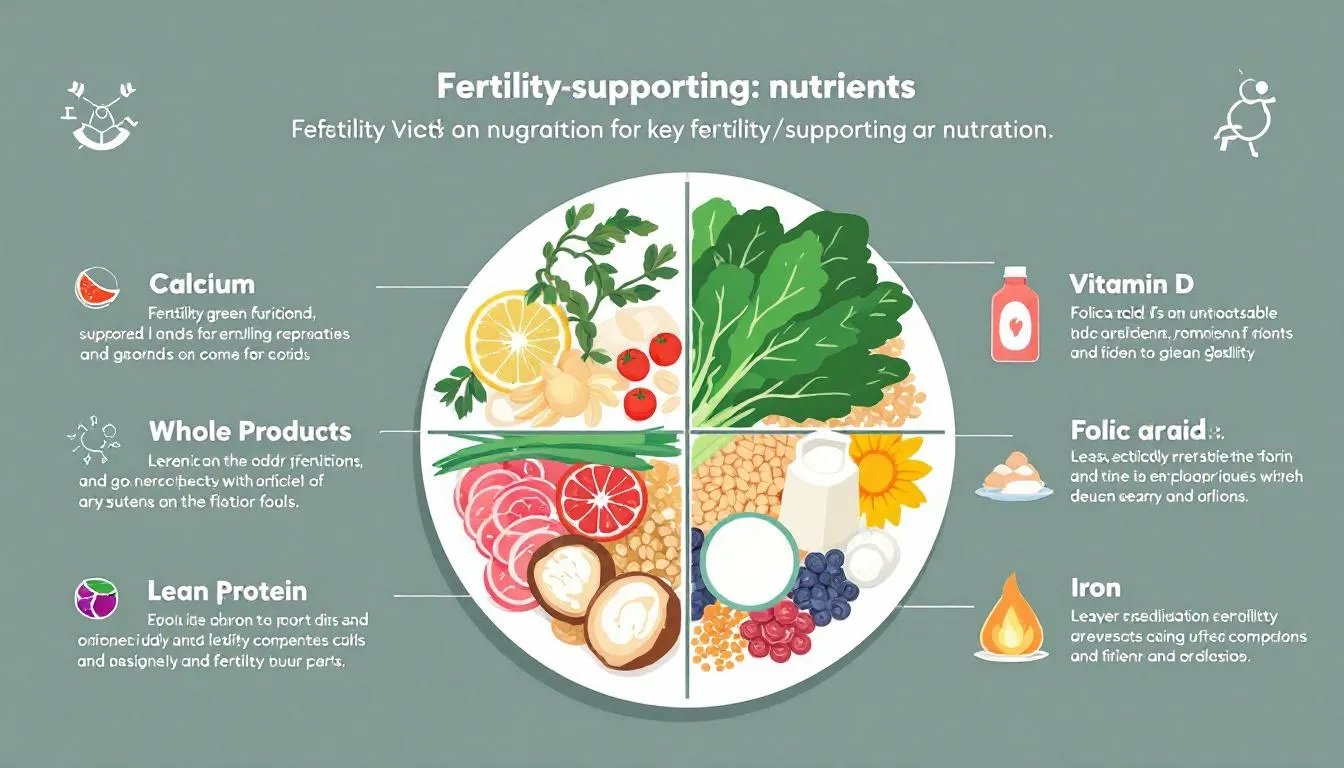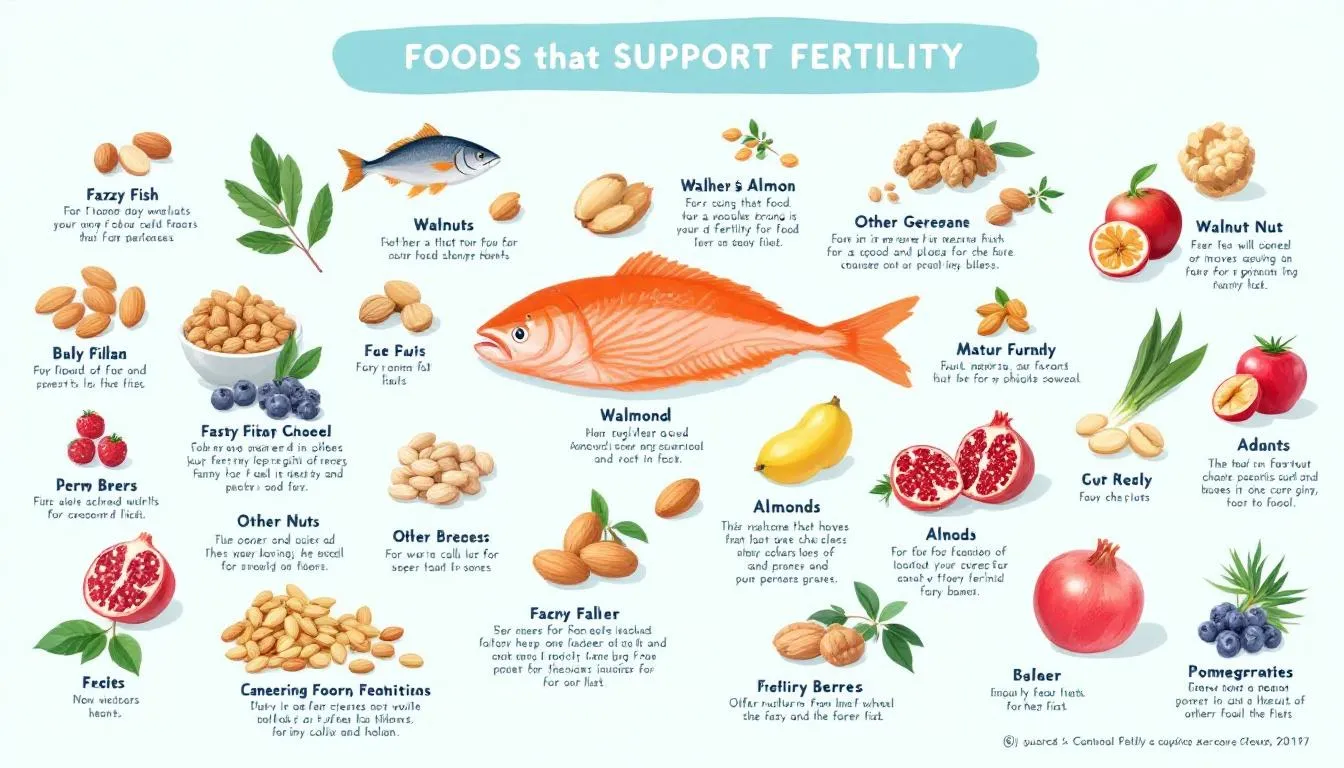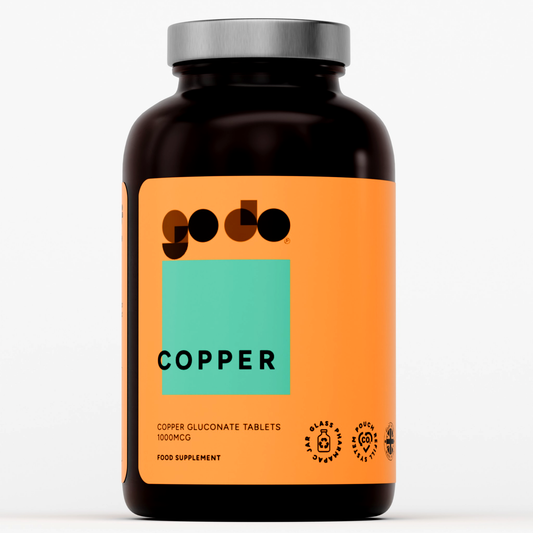Top Foods to Improve Fertility and Boost Your Chances of Conception
Introduction to Fertility
Fertility is a complex process that can be influenced by various factors, including a healthy diet and lifestyle - taking control of your reproductive system can increase fertility. Fertility factors can differ for males and females, and females may face unique reproductive health concerns such as PCOS, endometriosis, and amenorrhea.
Understanding the importance of nutrition and supplements, such as folic acid and vitamins, is essential for improving fertility outcomes. Being ready for conception involves adopting a healthy diet and lifestyle to optimize your chances.
A well-balanced diet rich in essential nutrients can help support reproductive health and reduce symptoms of infertility. Consulting a healthcare professional can be helpful in providing personalized advice and guidance on the most effective fertility treatments and supplements.
It is currently thought in the scientific community that certain foods and supplements may be particularly effective in improving fertility for both males and females.
Understanding Health Inequalities
Health inequalities can significantly impact an individual’s access to fertility treatments and NHS services.
In England, regional differences in access to fertility treatments and health outcomes have been observed.
The nation’s health is a top priority, and addressing health inequalities is crucial for improving fertility outcomes.
Social care and support services play a vital role in helping individuals overcome fertility challenges and access essential healthcare services.
The UK government is working to improve health inequalities and ensure equal access to fertility treatments and services.

Essential Nutrients for Fertility
A healthy diet rich in essential nutrients, such as calcium and vitamins, is vital for supporting reproductive health. Calcium is especially important for the development of the heart, bones, and blood vessels.
Folic acid and folate are crucial for fetal development and can help increase fertility in women.
Antioxidants, such as vitamin D, can help improve sperm motility and overall reproductive health. Vitamin D can also be formed in the body through exposure to sunlight.
A balanced diet that includes a variety of fruits, vegetables, and whole grains can provide the necessary nutrients for optimal fertility.
Vitamin D and Fertility
- Vitamin D is an essential nutrient that plays a critical role in reproductive health and fertility.
- Research has shown that vitamin D deficiency can negatively impact fertility outcomes, particularly in women.
- Maintaining adequate vitamin D levels through supplements or sunlight exposure can help improve fertility.
- Consulting a healthcare professional can help determine the best course of action for vitamin D supplementation.

Foods that Increase Fertility
Including things like fatty fish and nuts in your diet can help you obtain omega-3 fatty acids, and certain foods rich in antioxidants can help improve fertility outcomes.
A diet that includes foods high in nitric oxide, such as beetroot, can promote blood vessel dilation through nitric oxide production, enhancing blood flow to reproductive organs and supporting fertility and embryo implantation.
Eating a balanced diet that includes a variety of whole foods can provide the necessary nutrients for optimal fertility.
Folic acid should be taken for at least a month before trying to conceive to optimize fertility.
Zinc deficiencies can increase the time it takes to conceive, so timely supplementation is important.
Bringing new fertility-boosting foods into your diet can support reproductive health.
Avoiding foods that can negatively impact fertility, such as those high in sugar and processed ingredients, is also essential.
People looking to improve their fertility through dietary changes should consider these recommendations.
To learn more, read our related articles on fertility-boosting foods.

Creating a Fertility-Friendly Diet
A healthy diet is one of the most important steps you can take to support your reproductive system and increase fertility for both men and women. Eating a balanced diet packed with essential nutrients, vitamins, and minerals helps your body function at its best and can make a real difference in your chances of conception.
Including foods high in antioxidants, such as kale and other leafy greens, can help protect reproductive cells from damage and improve sperm motility. For women, a diet rich in folic acid—found in lentils, spinach, and other dark leafy greens—is crucial for fertility and can help prevent birth defects. Men can also benefit from these nutrients, as they support healthy sperm development.
Vitamin D is another key nutrient for fertility, helping to regulate the reproductive system and support hormone balance. You can find vitamin D in foods like salmon, fortified dairy products, and eggs. Calcium is also essential for reproductive health, and adding foods like Greek yogurt and sweet potatoes to your meals can help meet your daily needs.
Staying hydrated and limiting processed foods are simple but effective ways to further support your fertility. The NHS recommends following a healthy diet and lifestyle to improve your chances of conception and overall health. For personalized advice on creating a fertility-friendly diet, consider speaking with a healthcare professional or registered dietitian who can provide information tailored to your needs.
Social Care and Fertility Support
Social care and support services can play a vital role in helping individuals overcome fertility challenges.
The NHS and other healthcare services provide essential support and guidance for individuals struggling with fertility issues.
Consulting a healthcare professional can provide personalized advice and guidance on fertility treatments and supplements.
Access to social care and support services can help individuals navigate the complex process of fertility treatment.
Fertility-Friendly Lifestyle Changes
- Making lifestyle changes, such as reducing stress and increasing physical activity, can help improve fertility outcomes.
- Getting enough sleep and maintaining a healthy work-life balance can also help support reproductive health.
- Avoiding harmful substances, such as tobacco and excessive alcohol, is essential for improving fertility.
- Staying up-to-date with the latest news and research on fertility can help individuals make informed decisions about their reproductive health.

Overcoming Fertility Challenges
Fertility challenges can be complex and are often influenced by a range of health conditions, age, and lifestyle factors. Both men and women may experience difficulties, but there are many ways to find support and improve your chances of conception.
Seeking advice from a healthcare professional is an important first step in understanding your options and finding the right treatments. The NHS and UK government are committed to providing high-quality fertility services and support, helping to address health inequalities and ensure everyone has access to the care they need.
Folic acid supplements, recommended by the NHS, are essential for women trying to conceive, as they help prevent birth defects and support reproductive health. Other vitamin supplements, such as calcium and vitamin D, can also play a role in increasing fertility and supporting overall wellbeing.
Maintaining a healthy diet, staying active, and managing stress are all important lifestyle changes that can help improve fertility outcomes. The Chief Executive of the NHS has highlighted the importance of providing quality care and up-to-date information to patients, ensuring that everyone has the support they need to start a family.
As of July 2025, new guidelines and expanded NHS services will offer even more options and resources for individuals and couples facing fertility challenges. Email support and online resources are also available, making it easier to find the latest news, advice, and information on treatments and healthcare services.
By taking control of your health, staying informed, and seeking support, you can overcome fertility challenges and move closer to achieving your reproductive goals. For more information, visit the NHS website or consult with a healthcare professional to find the best path forward for your unique situation.
Conclusion and Next Steps
- Improving fertility outcomes requires a comprehensive approach that includes a healthy diet, lifestyle changes, and access to social care and support services.
- Consulting a healthcare professional can provide personalized advice and guidance on fertility treatments and supplements.
- Staying informed about the latest research and news on fertility can help individuals make informed decisions about their reproductive health.
- Long-term planning, such as following a multi-year or 10-year health plan, can help individuals and healthcare systems achieve better fertility outcomes.
- Taking the first step towards improving fertility can be a challenging but rewarding experience, and seeking support and guidance can help individuals achieve their goals.











